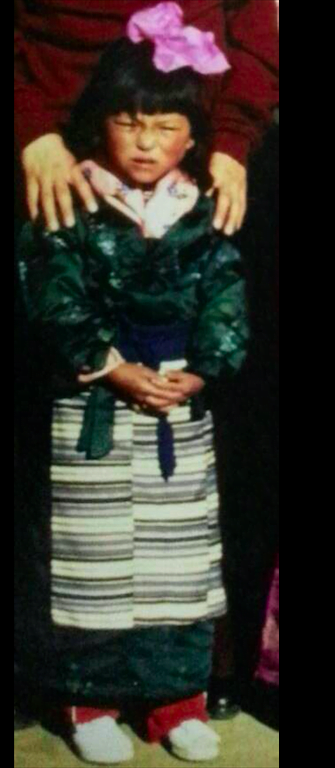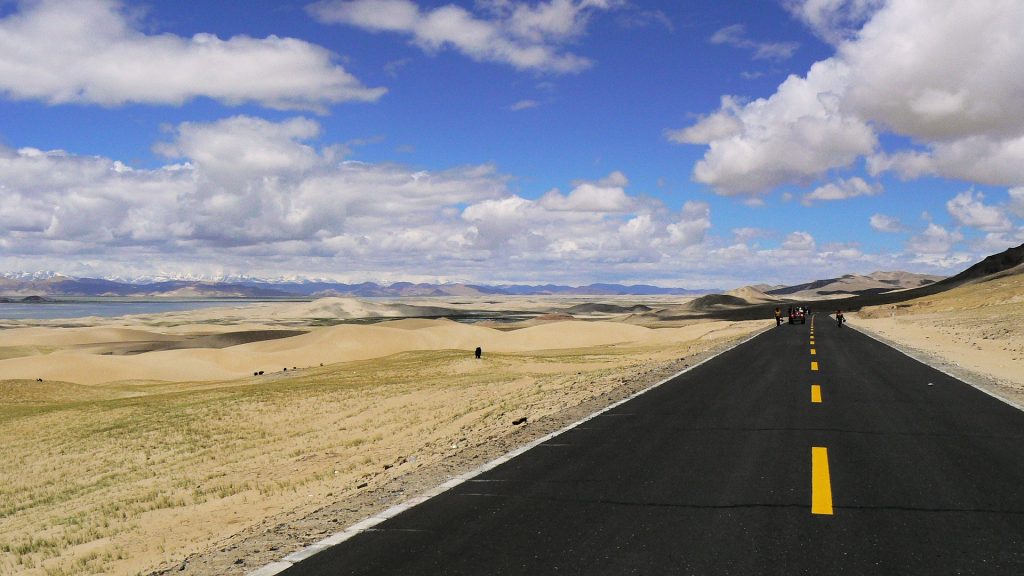What My Mother Risked in Smuggling Me Out of Tibet
This article was originally published on Medium and reposted with permission.
I want to remember every detail about that day — the physical surroundings, the weather, our companions, and above all, everything about my late mother — but I can’t.

All I remember is that she was holding me by the hand while my baby brother was snuggled inside her Chupa, a traditional Tibetan dress. I was 8 years old, and we were about to cross into Nepal.
My story is not the same as those of the families being separated at the U.S. border, but the message is the same: Fundamental ideas like “life, liberty, and the pursuit of happiness” are enshrined in important government documents like the Declaration of Independence. Sometimes the pursuit of life and liberty means crossing a border.
Mine also isn’t a unique story. Countless other Tibetan mothers embarked on far more perilous routes for the sake of their children. After China laid claim to Tibet around 1950 and went on to invade and occupy it, there were uprisings and destruction.
In annual rankings by Freedom House, a U.S. organization promoting human rights and democracy, Tibet consistently has been the second “worst” place in the world for its scores on political rights and civil liberties. For comparison, Syria has ranked first and North Korea has ranked fourth or fifth.
My mother saw a far brighter future for her kids in crossing the border than waiting endlessly for a legal passport.
As my mother held my hand that day, she asked me something that chilled me to the bone; she asked if I could pretend to be a local kid crossing the bridge. My mother had a legal passport to go by bus, but I did not. I was scared to cross alone.
If we all went on the bus and were caught by the Chinese border patrol, we would probably be thrown in jail for a few days and forced to return to Tibet. The uncertainty was boundless. But my mother saw a far brighter future for her kids in crossing the border than waiting endlessly for a legal passport that was economically and politically restrictive.
I’d already had last words with my father when I’d gotten on the truck in my village. He’d held my hand tight with tears flowing down his cheek and said, “Abba drempa ma jey,” which means “Don’t forget your father.” Through the rearview mirror, I’d watched him disappear and let my tears out.
So as my 8-year-old self faced the looming possibility of also being separated from my mother, I wailed until she relented. I gave her no option but to bring me with her on the bus and risk being arrested.
My poor mother hid me between her legs, covering me with a shawl. I was unaware of the imminent danger I was putting my family and myself in. As the bus roared to life, I could hear my mother running through her rosary as she prayed fervently, but I was happy. I think I wouldn’t even have minded being in jail as long as I could have my mom around.

Scapegoating immigrants for domestic, social, and economic problems is an act of ignorance.
Soon, though, Chinese border patrol agents got onto our bus for their routine checks. Someone in the front row did not comply with their orders for some reason. All I knew was that the soldiers surrounded him, and eventually, he was arrested. My mom’s prayers were answered, though, as the agents stopped checking the rest of the passengers. She couldn’t stop beaming for the rest of our journey.
After dropping me off at a Tibetan school in India, my mother had to return to Tibet. I stayed and grew up in Tibetan Children’s Village School, which was technically foster care. The separation from my mother left me with a hollow longing that, over time, I learned to repress.
I became distant and aloof — an eccentric bookworm whose ideal respite was spending an entire day in a library away from the foster home. My penchant for books reflected in my academic achievements, but I acutely lacked social skills. It took me many years of childhood heartbreak to reconcile with the fact that I was trying to fill the emotional void left by the separation from my parents.
As family separations not unlike mine keep happening everywhere — including the U.S. — we must realize that scapegoating immigrants for domestic, social, and economic problems is an act of ignorance, and the power of that ignorance can never be underestimated.
About the Author: Rinzin Wangmo is a writer, dentist, and educator in health policy analysis.
The post What My Mother Risked in Smuggling Me Out of Tibet appeared first on NextShark.
Contributer : NextShark



 Reviewed by mimisabreena
on
Saturday, December 07, 2019
Rating:
Reviewed by mimisabreena
on
Saturday, December 07, 2019
Rating:













No comments:
Post a Comment